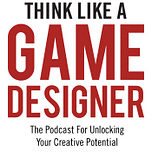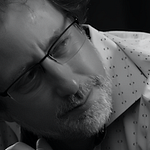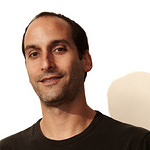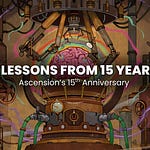About Geoff Engelstein
Geoff Engelstein joins us today to share his expansive journey in the gaming world. An award-winning tabletop game designer, Geoff has crafted acclaimed titles such as Space Cadets, The Fog of War, Pit Crew, and Super Skill Pinball. Beyond game design, Geoff is an adjunct professor at the NYU Game Center, where he imparts his deep knowledge of game mechanics and theory. He has contributed extensively to the Dice Tower podcast series on the math, science, and psychology of games and has hosted the Ludology podcast, diving into the intricacies of game design. With a degree in physics and electrical engineering from MIT and leadership roles at companies like Mars International, Mind Bullet Games, and Navar Engelstein Associates, Jeff brings a unique blend of analytical rigor and creative insight to his work. In this episode, Geoff discusses his origin story, the impact of psychology on gameplay, and the evolving tools and techniques that shape game design today. Tune in to uncover the depth of Geoff Engelstein’s expertise and his contributions to the games industry.
Want to support the podcast and get more design lessons?
Paying subscribers enjoy an abundance of extra game design content and an exclusive newsletter with new lessons, archive access, videos, and more! By opting for a free or paid subscription, you can get the latest articles delivered to your inbox and support this podcast!
Ah-ha! Justin’s Takeaways
Chutzpah is a superpower: There is something incredulous about thinking you can make a living as a creative entrepreneur or designer. You have to believe at the core of your being that you can do something better than anybody else. Your company, your game, your idea—whatever it is—needs to provide an experience for your users better than anyone else can in order for it to succeed. Geoff uses the word "hubris" in the episode, but I prefer the Yiddish word for this extreme self-confidence: chutzpah. Without at least a little chutzpah, we wouldn’t be willing to try to do something remarkable like design a game or start a business. The key to creative success is to balance your chutzpah with your willingness to take in feedback from the world around you and adapt your direction based on what you learn without losing the self-confidence needed to keep driving you forward.
Write Down What Excites You in the Beginning: It's important to remember what sparked your excitement about a project for two reasons. First, it can help you stay motivated when you inevitably hit roadblocks. But more importantly, referring back to this excitement as you go through the Core Design Loop—the iterative process by which you develop your project—is crucial. You want to deliver that same sense of excitement to your players and users. If you stray too far from that feeling, it's worth re-evaluating the project to ensure you are on the right track or if you need to redefine what it is you are really designing.
Show Notes
"It's a pretty big thing, and you just have to have sort of a little bit of overconfidence, I guess, or lack of self-awareness." (11:02)
Geoff discusses the mindset for tackling large projects in game design, emphasizing the importance of confidence and persistence. He shares his philosophy on overcoming self-doubt and the value of pushing through difficulties to achieve success. We’ve discussed this on the podcast numerous times: being brave enough to start working on your creative project and learning from the mistakes you make during the process.
"When I teach my class, I have two slides that I introduce my section on playtesting about. One is your playtesters are always right, or always listen to your playtesters. And the second slide is never listen to your playtesters." (22:51)
Geoff tells us about an early experience pitching a game to Z-Man Games. He describes the humbling lesson he learned when his game did not meet expectations. He highlights the importance of thorough playtesting and being prepared to receive critical feedback. He elaborates on the nuanced relationship between game designers and playtesters, explaining the balance between valuing feedback and trusting one’s own design instincts. He underscores the complexity of interpreting playtester input effectively.
"If Unity was out when I was in high school, I never would have left the house." (29:46)
In this segment, we discuss modern tools available for game design, such as Unity. Geoff contrasts them with the limited resources he had while learning to program on the Apple II. He encourages aspiring game designers to use these powerful, accessible tools to bring their creative visions to life.
"You have to create a safe space for people to fail and understand that failure is a part of the learning process." (34:10)
Geoff and I believe it is vital for students of any creative work to create a safe environment where failure is not only accepted but seen as a valuable step in the learning process. He discusses the necessity of embracing mistakes and learning from them to grow as a game designer.
"We started the Tabletop Game Designers Association to help designers be less exploited, give them more tools to negotiate decent contracts and understand what they're getting into, and help them when things don't go according to plan." (45:55)
I asked Geoff about the motivation behind founding the Tabletop Game Designers Association, which aims to provide resources and support for designers to navigate the industry's complexities and protect their interests.














